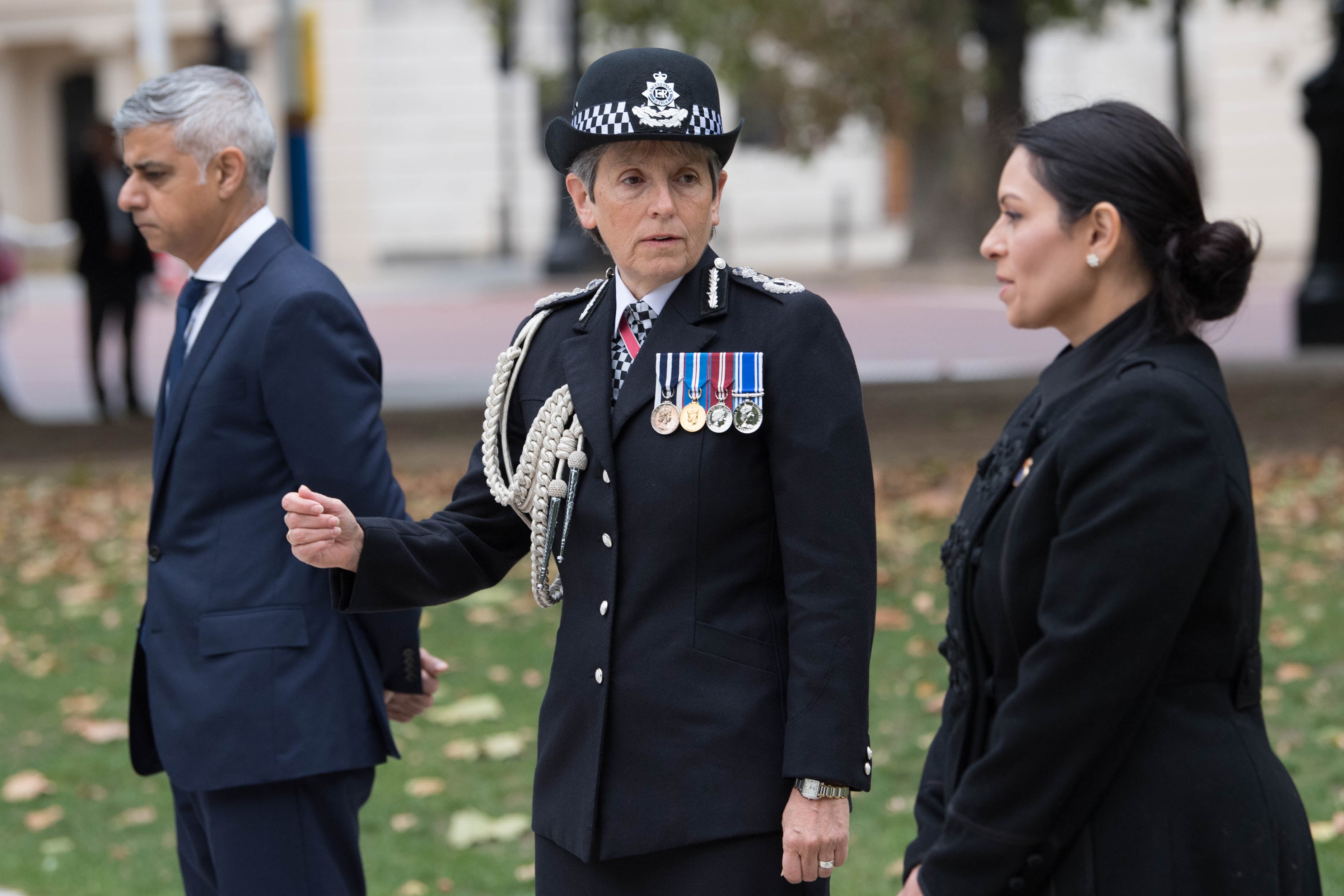Cressida Dick’s departure shows power of London mayor in national life
The formal requirement to consult the mayor has evolved into a de facto right of veto, writes Sean O’Grady


Formally, the Metropolitan Police commissioner is appointed by the Queen on the recommendation of the prime minister.
In practice – and especially with the prime minister now being investigated by the force – it is the choice of the home secretary. Indeed, until 2000 and the establishment of the Greater London Authority, the appointment was the responsibility of the home secretary. It reflected the force’s special status and national policing role, such as in counterterrorism.
Now, although the formalities are still observed, the Met commissioner is not so much at the pleasure of Her Majesty but at the pleasure of the directly elected mayor of London. Without the public confidence of the mayor, any incumbent or applicant for the role cannot serve for long. That is one of the most significant lessons of the resignation of Dame Cressida Dick.
Apart from anything else, it is a demonstration of how important a figure the London mayor now is in national life. Not even a Conservative government underpinned by a large majority and with an assertive home secretary can ignore the views of the mayor on policing. The formal requirement to consult the mayor in the appointment has evolved into a de facto right of veto. It is one that Sadiq Khan has used with little hesitation.
It is not unprecedented. A previous Met commissioner, Sir Ian Blair, had to move on in 2008 when it became apparent that he no longer enjoyed the confidence of the then mayor of London – one Boris Johnson. At that time, the Met was overseen by the Metropolitan Police Authority (MPA), roughly analogous to the traditional kind of committees that used to supervise policing in every local authority. It comprised members of the Greater London Assembly, appointed by the mayor, plus some councillors from the London boroughs, a few magistrates and some independent members.
By the time Johnson became mayor in 2008, the democratic dynamics had changed. The Cameron government introduced elected police and crime commissioners, and the MPA was replaced by the Mayor’s Office for Policing and Crime – a significant strengthening of mayoral and political influence, and a recognition that no commissioner can survive without democratic support in some form.
In the end, Dame Cressida ended up without the support of the home secretary and the mayor, sometimes for conflicting reasons. Clever, experienced and articulate as she was, she failed to play the bureaucratic political game well enough to ensure her continued survival. In football terms, she had lost the dressing rooms in the Home Office and at City Hall. Given the fact that Priti Patel apparently knew nothing of Dick’s departure until after it had been decided, there can be no doubt as to where the balance of power now lies.
Khan is a man with political ambitions in the Labour Party, and, with his display of decisive leadership and converting mere influence into real power in London, he has boosted his reputation, just as Andy Burnham has done in Manchester and indeed Johnson did in Tory circles a decade ago. The mayor of London enjoys the numerically largest personal mandate of any politician in the UK, and, as Ken Livingstone, Johnson and now Khan prove, enjoys a national profile. It is another small sign of how Westminster doesn’t quite dominate the political scene as it once did, not even in London.
There will be much excited talk in the coming days and weeks about who will be the new “Commissioner of Police of the Metropolis”, to use the full, formal title dating back to the Metropolitan Police Act of 1829. Will it be a person of colour? Someone who knows London’s challenges well? Perhaps someone with a reputation as a reformer, and from outside London? There’s even some speculation about a figure from abroad. Rather like the manager of the England football team, it’s the kind of job that is high profile, high risk, very political, in all senses, and where you can very rarely win, on any measure. It needs a special blend of qualities – in leadership, policing, management, diplomacy, and in public relations. The recruitment process will take time.



Join our commenting forum
Join thought-provoking conversations, follow other Independent readers and see their replies
Comments